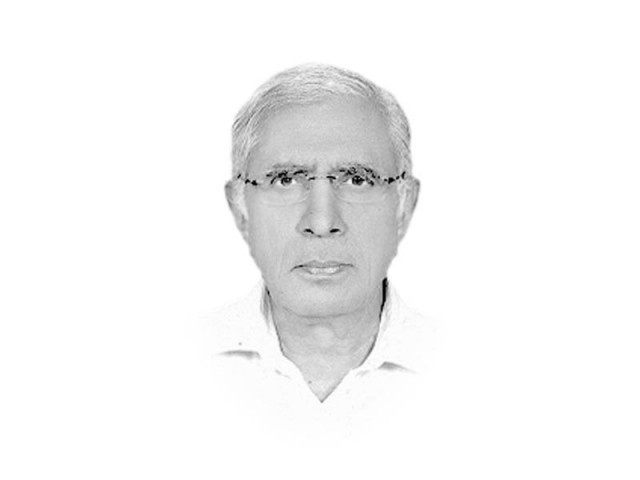Decent capitalism
Economic model established after Second World War generated what is called middle-class society

The writer served as executive editor of The Express Tribune from 2009 to 2014
The consequence: the bill was passed on to the public, leaving governments’ capabilities to care for those who needed support or to counterbalance economic recessions even weaker than before.
Disillusioned with the consequences of this economic model founded on what since early 1980s has been known to be no-holds-barred capitalism and underpinned by unregulated free market economy, a select group of economists is seeking ways to reshape it into ‘decent’ capitalism.
At about the time when the crisis was unfolding with dramatic speed and reach, the German think tank, the Friedrich Ebert Foundation, organised a seminar to find out more about the various perspectives of the crisis. The seminar took the depressing insight as a call for action, and reinforced its activities in building up knowledge of and support for a fundamental correction of capitalism’s excesses.
The main participants of the seminar (Sebastian Dullien, Hansjorg Herr and Christian Kellermann) have come up with a book Decent Capitalism conceived as a blueprint for a better economic system (still) based on capitalist principles. The book tries to dig deep and reveal the structural problems of the economic system as a whole.
This book is said to be about economic life as a whole and how a ‘decent capitalism’ could be constructed which delivers to all people and is lot less crisis-ridden and more sustainable than the current variants of capitalism.
Misconduct rooted in hubris and greed, both bred by deregulated markets, nearly brought the system down in ruins. It was only because the governments stepped in and bailed out what were declared to be systemically relevant financial institutions that economies did not collapse completely.
The, in which both absolute poverty and extreme wealth manifested themselves only occasionally.
This model bestowed on the global economy a whole series of economic miracles like those in Germany and Japan. However, all Western countries were able to notch up positive development in terms of real growth. Unemployment was comparatively low during this period.
The ‘golden-age of capitalism’ fell apart as Bretton Woods system broke down in mid-1970s which gave way to the emergence of market-liberal changes.
In the opinion of the authors of the book, the realisation that the model of post-war decades was shattered by a combination of political and institutional problems holds out the hope that a regulated capitalism can succeed which is more socially acceptable, humane and stable than the market-liberal project.
According to the authors of the book the main features of the model based on decent capitalism would include three interrelated dimensions.
First, the model should be ecologically sustainable: preventing global warming, changing to a renewable energy basis and preventing other problematic developments such as a reduction in biodiversity. Second, it should be formed in such a way that the targeted growth process is not jeopardised by either the asset-market inflation or ensuing deflation (so-called boom-bust cycles), and does not result in the excessive indebtedness of individual sectors or even whole economies, thereby leading to the next crisis.
At the same time, such a model should promote innovation and, therefore, technological development necessary both for solving ecological problems and, in the medium and long term, increasing labour productivity and so holding out the possibility of growing prosperity for all.
Third, all population groups have a share in social progress. Inequality of income and wealth distribution must be at politically and socially acceptable limits. Everybody should have a decent living.
Published in The Express Tribune, July 20th, 2019.
Like Opinion & Editorial on Facebook, follow @ETOpEd on Twitter to receive all updates on all our daily pieces.















COMMENTS
Comments are moderated and generally will be posted if they are on-topic and not abusive.
For more information, please see our Comments FAQ